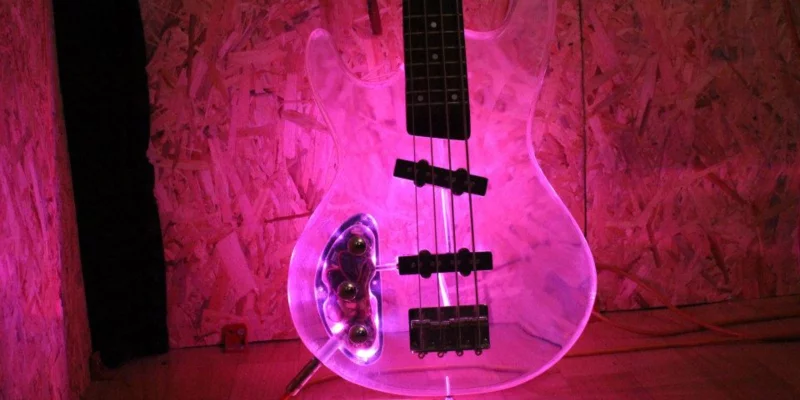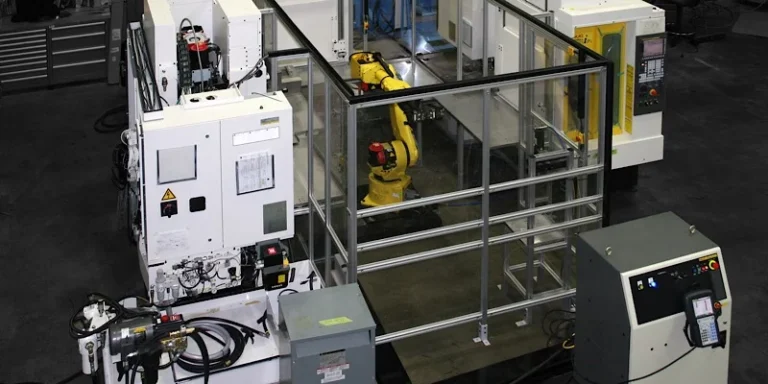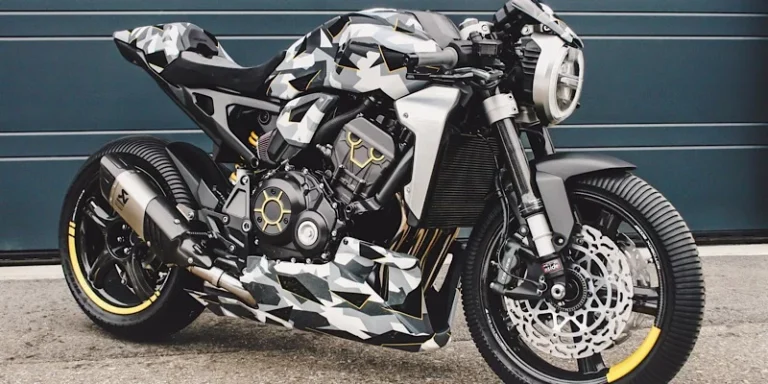A futuristic-looking electric bass guitar made from PMMA
PMMA, or PolyMethyl MethAcrylate, is a transparent thermoplastic widely recognized as Acrylic or Acrylic glass. Often referred to as ‘Plexiglass,’ PMMA was first produced in 1928. It is renowned for its exceptional clarity, making it one of the clearest plastics available. Today, PMMA is utilized in a variety of industrial applications.
PMMA Compared With Glass
Compared to glass, PMMA is a superior material for clear optical prototyping. However, shaping and molding PMMA using conventional techniques can be challenging. The material is prone to failure under tensile and compressive forces, necessitating a cautious machining approach to prevent cracks or fractures. High-tech CNC machining is often employed to produce PMMA prototypes.
CNC machining of PMMA is preferred over other techniques because it is faster, more reliable, cost-effective, and customizable to meet specific user requirements.
PMMA Prototypes Via CNC Machining And 3D Printing
PMMA is available in sheets and round stocks, making it an excellent choice for subtractive machining processes, though it can also be utilized in additive manufacturing techniques. PMMA prototypes can be easily manufactured via CNC in a variety of colors, as stock PMMA is available in numerous shades and can be dyed to meet specific color requirements.
Clear PMMA parts are often produced to create glass-like prototypes that are stronger, lighter, and more durable. CNC machining allows for stock sheets to be transformed into complex shapes. However, it should be noted that achieving clear PMMA parts requires proper sanding and polishing after machining. This process removes any tool marks and fully restores the material’s transparent nature.
Properties of PMMA prototypes
Prototypes manufactured from PMMA are light, strong, economical, and tough, making them superior to glass in many respects. PMMA prototypes exhibit excellent impact strength, significantly higher than that of glass and polystyrene, making PMMA an ideal material for clear and durable prototypes. Some key properties of PMMA are summarized in the following table:
| Properties | Value |
| Technical name | PMMA (PolyMethyl MethAcrylate) |
| Chemical formula | (C5H8O2)n |
| Melting Temperature | 130°C (266°F) |
| Standard injection mould temperature | 130°C (266°F) |
| Heat deflection temperature (HDT) | 95°C (203°F) at 0.46 MPa (66 PSI) |
| Specific gravity | 1.18 |
| Shrink rate | 0.2 – 1% (.002 – .01 in/in) |
| Tensile Strength | 65 MPa (9400 PSI) |
| Flexural Strength | 90 MPa (13000 PSI) |
| The coefficient of thermal expansion | (5–10)×10−5 °C−1 |
| Visible light transmission | 92% |
Uses Of PMMA Prototypes
PMMA prototypes are highly sought after by industries seeking a stronger and more cost-effective alternative to expensive and brittle glass. Applications such as security barriers, LCD screens, windows, tanks, medical devices, and lenses increasingly utilize PMMA instead of glass. As a result, the use of PMMA prototypes has seen a significant rise over the past decade, with many industries favoring PMMA for its superior properties and versatility.
10-meter-deep into the Monterey Bay Aquarium, PMMA is used instead of glass

- Transparent Glass substitute
PMMA clear parts serve as an excellent substitute for glass and are widely used in both commercial and residential aquariums. Due to its strength and clarity, PMMA is also commonly employed for viewing ports and complete pressure hulls in deep-sea submersibles. Additionally, PMMA and its finished products are utilized in the lenses of automobile headlights and taillights. Safety vehicles, such as those used for riot control, often use PMMA for windows because it offers better protection against thrown objects. Many buildings also opt for PMMA instead of glass for windows due to its superior strength.
PMMA art by Manfred Kielnhofer
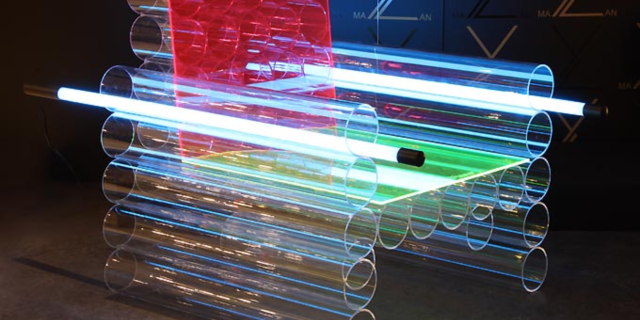
- Artistic and Aesthetic uses
Many different prototypes are constructed using PMMA due to its appealing physical appearance. Products and prototypes made from this material exhibit excellent reflection and a modern aesthetic, enhancing their overall visual appeal. Companies often choose PMMA to attract media attention and impress shareholders at exhibitions. Thanks to its futuristic look, PMMA is frequently used to create prototypes of furniture, musical instruments, jewelry, and automobiles.
A gorgeous looking Lexus Perspex car sculpture made only with high-quality PMMA
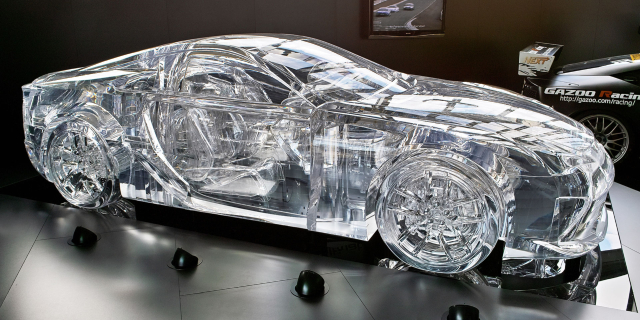
- Medical industry
PMMA prototypes and products are widely utilized in the medical industry. Contact lenses and eyeglass lenses are often made from PMMA due to its reduced brittleness compared to glass. Additionally, PMMA’s compatibility with human tissue makes it suitable for cataract treatment. PMMA is also used in bioprocess chromatography, tuberculosis treatment, and cosmetic surgeries. Furthermore, it is the material of choice for denture teeth.
Techniques To Manufacture PMMA Prototypes
There are several techniques for the rapid production of PMMA clear parts and prototypes. At AS Prototypes, we incorporate various rapid prototyping methods to ensure you receive your prototypes in the most cost-effective and time-efficient manner, while maintaining superb quality.
CNC machining is commonly used for complex geometries that require hand polishing. With CNC, the prototype is produced to match design specifications precisely, often needing little to no alterations.
Injection molding is another popular method for rapid prototype manufacturing. Despite the upfront cost of initial tooling, low-volume injection molding is ideal for producing 100 to 10,000 parts. Vacuum casting is also a viable option, although both these techniques are typically used for less complex geometries.
Additive manufacturing is another effective method for PMMA production. At AS Prototypes, we excel in 3D printing, which is often the preferred method due to its rapid production, minimal waste material, ability to create complex parts, and superior product finish.
CNC in action of PMMA
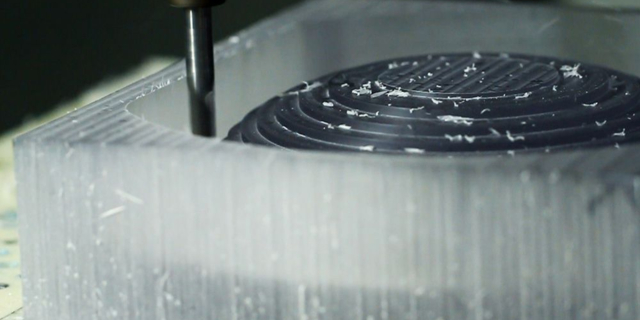
With that being said, we at AS Prototypes would love to hear from you and assist you with any PMMA-related questions and queries.

